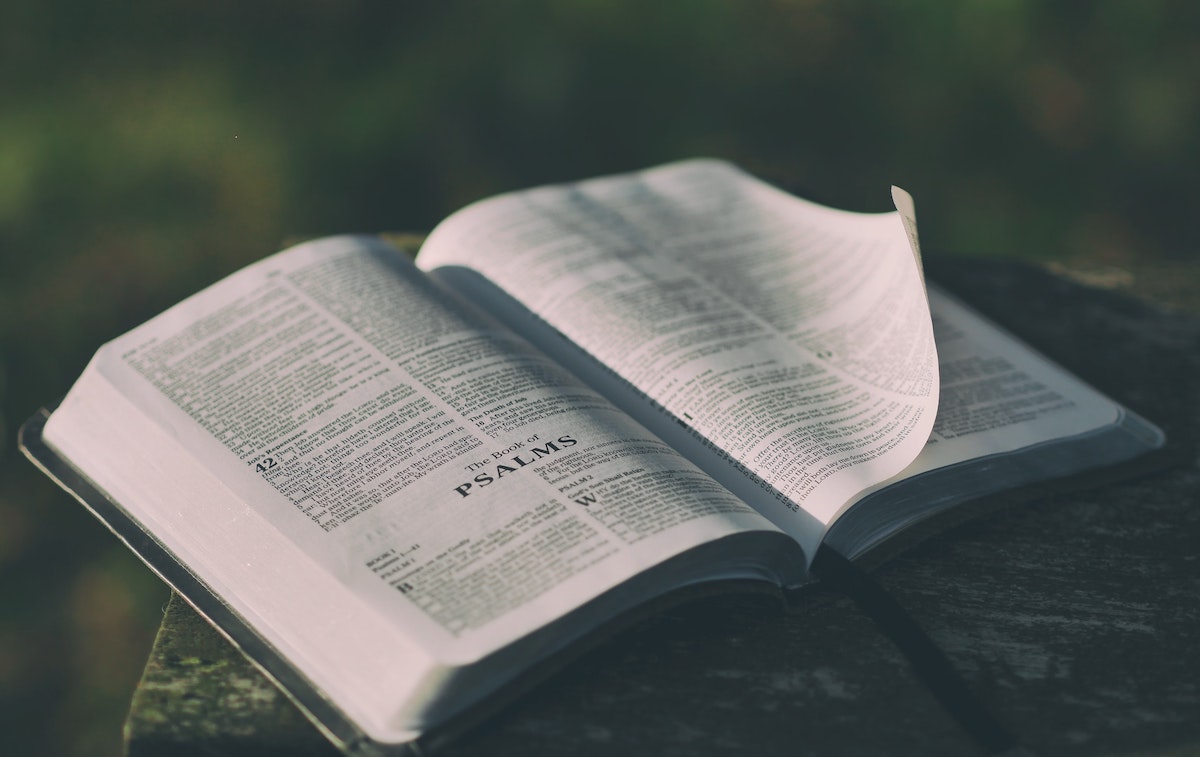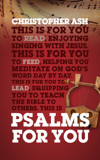
What does a psalm mean for Christian people today? We can ask this question on several levels.
At the lowest level we ask what the words and phrases mean. The psalms, perhaps even more than other parts of the Old Testament, are replete with strange idioms. Last weekend I was speaking on Psalm 80 at a church weekend. In verse 1 God is addressed as “You who are enthroned upon the cherubim.” What does that mean? So we need to get to know our bibles a whole lot better and discover the mercy seat on the Ark of the Covenant and all that it meant in Old Testament symbolism.
So that’s the lowest level, a challenge to growing biblical literacy. Then there are questions about how psalms work, how Hebrew poetry works, and in particular how the parallelism functions. Again, that’s not particularly difficult. But it needs to be done. There are some puzzles, for example how to translate tenses in Hebrew poetry; comparing good translations such as the ESV and the NIV not infrequently comes up with different tenses for the same verse in English. I suspect it doesn’t actually matter in poetry as much as we sometimes think.
But the really big challenge – and it is really big – is to transpose a psalm written (as it were) in an Old Covenant key into a New Covenant key in Christ. This is the big question: what difference does the coming of Christ make to the meaning of a psalm? The psalms were written before Christ came. But now he has come. The Incarnation has happened, the Lord has lived a flawless human life, he has died his atoning death to pay the penalty for sinners, he has been raised in his body and ascended to the Father’s right hand on high. This makes a huge difference!

Expository Bible-study guide to the Psalms that helps you to see Jesus in each one.
My book Psalms for You tries to work this out for a selection of 32 psalms. My previous books Teaching Psalms volumes 1 and 2 outline a possible approach and sketch this out with very brief Christian readings of all 150 psalms. But let me give some pointers here. The New Testament quotes often, and echoes even more often, the psalms. It does so, in broad brush terms, in three ways. Often the sufferings, the prayers, the praises, the “loud cries and tears” (Hebrews 5:7) of Jesus in his fully human nature find expression in the psalms; in these ways the psalms are indeed – as they have been called – “the songs of Jesus.” Second, things said of God in the psalms are applied to Jesus in the psalms. And third there is a consistent overflow from what is true of Jesus – his sufferings, his prayers, his praises, his final vindication – to what is, or will be, true of the church of Christ.
This encourages us to find the fulfilment of the psalms in the divine-human person of the Lord Jesus Christ with great richness. But it also points us to expect the church of Christ to experience what the psalms describe, to pray what the psalms pray, to praise as the psalms praise and to proclaim what the psalms proclaim. In other words, we should and can sing the psalms as the church of Christ!
I have found it helpful to ask myself the following questions when considering a psalm and preparing to make it my own.
What would it have meant for David, or the original psalm-singer, to sing the psalm?
Closely linked to this is the question: what would it have meant for genuine Old Covenant believers to sing the psalm? My favourites are Simeon and Anna and the group who met with them in the Temple, of whom we read in Luke 2. If they sang this psalm, I ask myself, what would it have meant on their lips?
I then ask myself: what might it have meant for the fully human Jesus of Nazareth, as the flawless believer and perfect worshipper, to have sung this psalm? The answers will be different from psalm to psalm. There is rich variety in the psalms. But it will always be an instructive question. (In my books I address some of the obvious difficulties, such as where the psalmists confess their sins.)
Finally I ask, what will it mean for us, as the church of Christ today, to sing this psalm?
I hope these pointers may begin to help you on the lifelong journey of learning to sing the psalms. I hope my books will help a little more!
Enjoy reading and applying different types of psalms, and seeing Jesus in every one with Christopher Ash's new book, Psalms For You. Buy it here.